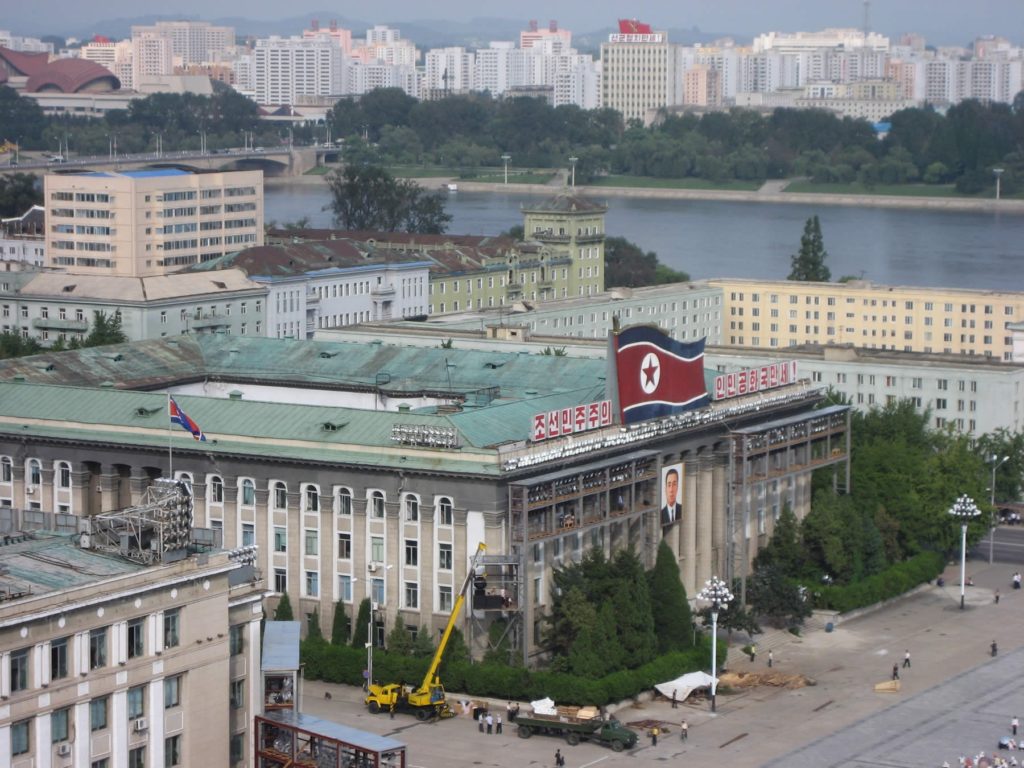The Peninsula
The Death of Kim Jong-nam: Implausible Deniability

By Mark Tokola
The story of Kim Jong-nam’s assassination took a bizarre turn with the announcement by Malaysian authorities that the cause of death was a banned chemical weapon, the nerve agent VX. It is only supposed to be held in limited quantities by the United States and Russia. However, it has been reported that North Korea has been developing stockpiles of VX, among other substances banned by the 1993 Chemical Weapons Convention, of which North Korea is not a party. The Malaysian announcement seems to have removed almost any remaining doubt that North Korea was responsible for the assassination, but why would North Korea choose to use such an exotic method when other, more prosaic, means of assassination were available? And why choose a weapon that would be so obviously traced back to North Korea?
Kim Jong-nam’s assassination has now become reminiscent of the 2006 assassination of Russian defector Alexander Litvinenko in London. Litvinenko was also killed by exotic means, exposure to a rare radioactive substance, Polonium, which was placed in a teapot used by Litvinenko in a hotel restaurant. Once the cause of death was established, it immediately placed suspicion on the Russian government. Litvinenko was a critic of Vladimir Putin’s and had exposed mafia-like behavior on behalf of Russian officials. Litvinenko, like Kim Jong-nam, had predicted that he might become the victim of a state assassination. Russia denied any responsibility for Litvinenko’s death, but an inquiry conducted by the British government concluded in 2016 that Litvinenko had been killed by the Russian Federal Security Service (FSB), and probably by the direct order of Vladimir Putin.
The parallels between the two assassinations are strong. Both Kim Jong-nam and Litvinenko were exiles from authoritarian regimes, both were killed by spy-novel type means that would clearly seem to indicate state-sponsored murder, and both of the authoritarian regimes that they hoped to have escaped denied any public responsibility for their deaths. Nevertheless, an exhaustive UK official inquiry established high confidence in Russian culpability in Litvinenko’s death, and it is now close to straining credulity to conclude that anyone other than North Korea could have murdered Kim Jong-nam.
Why would Russia and North Korea have carried out assassinations in ways that would point back to them? Because it serves their interests to appear responsible while at the same time formally denying responsibility. Both Russia and North Korea claim to adhere to international law. In an official statement, North Korea, brazenly, accuses the government of Malaysia of violating international law by conducting an autopsy and not releasing Kim Jong-nam’s body to them – without acknowledging that the body is in fact Kim Jong-nam’s. If Russia and North Korea announced that they had carried out the assassinations, they would be guilty of breaches of international law, possibly leading to sanctions and certainly becoming subject to international opprobrium. The countries in which Russia and North Korea had murdered their countrymen, the United Kingdom and Malaysia, would have grounds to take diplomatic countermeasures, perhaps expelling their diplomats, minimizing relations, or taking economic steps. Denying responsibility allows Russia and North Korea to claim to be in compliance with international law, to defend themselves against diplomatic countermeasures, and to allow themselves to continue to draw support from those at home and abroad who prefer to ignore the evidence.
Leaving their fingerprints on the assassinations also has its purposes for Russia and North Korea. It makes clear to current and potential defectors and dissidents that they can find no safety from retribution by living abroad. It also signals to the world that Russia and North Korea have the means to project power, albeit in a heinous manner. They can have it both ways. Call it implausible deniability.
Mark Tokola is the Vice President of the Korea Economic Institute of America. The views expressed here are his own.
Photo from David Stanley’s photostream on flickr Creative Commons.
